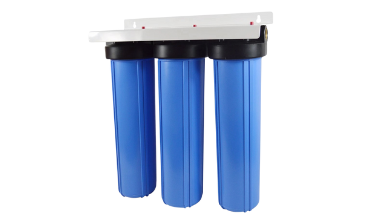
Water is essential for life, and having access to clean and pure water is crucial for maintaining good health. One way to ensure the quality and purity of water is through the use of water filters. These filters go through a series of processes that meticulously cleanse water from boreholes, rivers, or other water sources, turning it into safe drinking water. The journey from borehole to glass is not a simple one, but it is an important process that plays a significant role in keeping communities safe and healthy.
When water is sourced from boreholes, it may contain various contaminants such as bacteria, viruses, chemicals, and other impurities. These contaminants can have harmful effects on human health if ingested, which is why it is crucial to filter them out. Water filters come in different forms and sizes, but their main goal is to remove impurities and make the water safe for consumption. The filtration process typically involves several stages, each designed to target specific types of contaminants.
One of the first steps in the filtration process is sedimentation, where large particles and impurities are allowed to settle at the bottom of the water. This helps in removing visible dirt and debris from the water before it goes through further filtration. Next, the water passes through a series of filters that can remove smaller particles, including sand, silt, and other sediment. These filters can be made of materials such as activated carbon, ceramic, or even reverse osmosis membranes, depending on the level of purity desired.
As the water moves through the filters, various contaminants are trapped and removed, leaving behind clean and clear water. Bacteria and viruses are typically removed by filters with fine pores that can physically block their passage. Chemical contaminants, on the other hand, may be removed through adsorption or chemical reactions with certain filter materials. By the end of the filtration process, the water is typically free from harmful contaminants and safe for consumption.
Water filters not only remove impurities but also help improve the taste and odor of the water. Many contaminants can affect the taste and smell of water, making it unpalatable for drinking. By removing these impurities, water filters can enhance the overall quality of the water, making it more enjoyable to drink. This is especially important in areas where the water may have a strong odor or taste due to high levels of certain contaminants.
Another benefit of using water filters is that they can help reduce the risk of waterborne diseases. Contaminated water can spread diseases such as cholera, typhoid, and dysentery, which can have serious health consequences. By removing harmful contaminants, water filters can significantly reduce the risk of such diseases, especially in areas where clean drinking water is scarce. This makes water filters an essential tool for promoting public health and preventing waterborne illnesses.
Water filters are not only used at the household level but also in larger water treatment plants to provide clean and safe drinking water to communities. These plants use more advanced filtration techniques, such as ultrafiltration and nanofiltration, to remove even smaller particles and contaminants from the water. The water is then treated with chemicals such as chlorine to ensure that it remains safe and free from harmful microorganisms.
Overall, water filters play a crucial role in preserving the quality and purity of water, from borehole to glass. By removing contaminants and impurities, water filters help ensure that the water we drink is safe, clean, and free from harmful pathogens. Whether used at the household level or in larger water treatment plants, water filters are essential for maintaining good health and preventing waterborne diseases. Investing in a quality water filter is a simple yet effective way to ensure that you and your family have access to clean and safe drinking water at all times.
